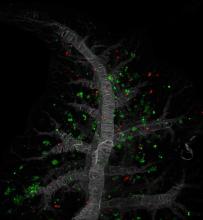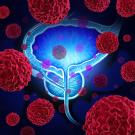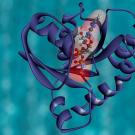News
Cancer-Killing Virus Acts by Alerting Immune System
A new UC San Francisco study has shown that a cancer-killing (“oncolytic”) virus currently in clinical trials may function as a cancer vaccine — in addition to killing some cancer cells directly, the virus alerts the immune system to the presence of a tumor, triggering a powerful, widespread immune
Marijuana Should Be Packaged, Regulated Following Tobacco Control Best Practices
California already has the nation’s largest medical marijuana market, and this year is expected to have the world’s largest recreational market. With enormous potential to influence policy, the state should take an assertive approach to cannabis labeling, packaging and product formulation, according
Current PSA Monitoring Ignores Risk to Some Prostate Cancer Survivors
Prostate cancer survivors make up the largest group, 41 percent, of male cancer survivors. In these survivors, early detection of recurrence can lead to life-saving interventions, but in older men who survived low-risk cancer and have limited life expectancy, those same interventions may do more
Apalutamide Delays Progression of Nonmetastatic, Castration-Resistant Prostate Cancer
Treatment with an investigational androgen receptor inhibitor significantly delayed the development of metastasis in patients with prostate cancer that had become resistant to standard androgen-deprivation therapy. The results of a multi-institutional, phase 3 clinical trial of apalutamide – led by
UCSF Community Saddened by Loss of Quiet Champion Sanford Diller
Helen and Sanford Diller: A Legacy of Philanthropy and Purpose The faculty and staff at the Helen Diller Family Comprehensive Cancer Center are among the many people saddened by the passing of Sanford Diller, a longtime friend and champion of UCSF and the Cancer Center. Support from Sanford Diller
UCSF Receives $500M Commitment from Helen Diller Foundation to Begin Planning New Hospital
UC San Francisco has received a $500 million commitment from the Helen Diller Foundation to support the planning, design and construction of a new, world-class hospital at the University’s historic Parnassus Heights campus, ensuring that UCSF can continue to provide premier care to patients in the
New Approach Attacks 'Undruggable' Cancers from the Outside In
Cancer researchers have made great strides in developing targeted therapies that treat the specific genetic mutations underlying a patient's cancer. However, many of the most common cancer-causing genes are so central to cellular function throughout the body that they are essentially 'undruggable'









